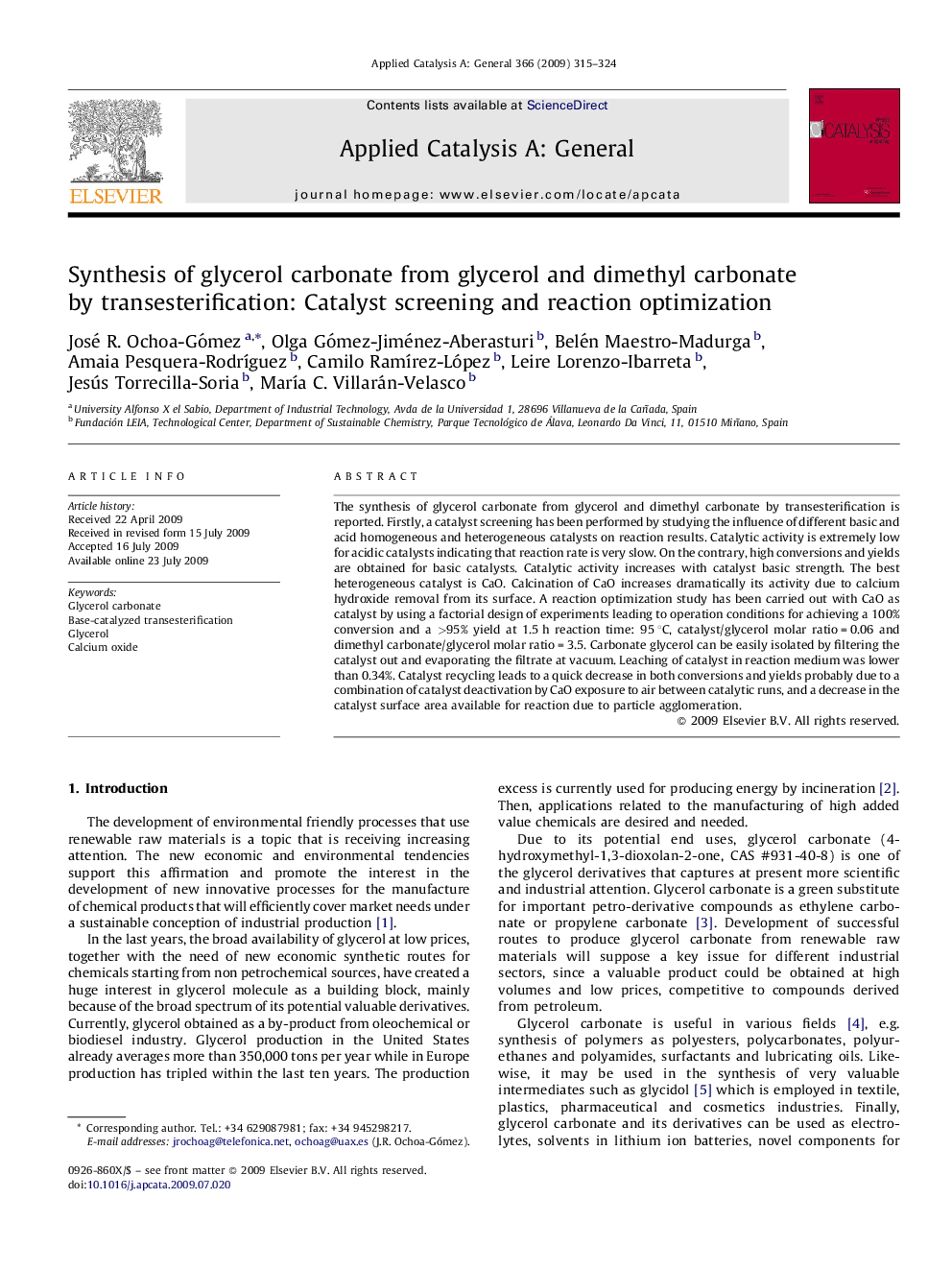| کد مقاله | کد نشریه | سال انتشار | مقاله انگلیسی | نسخه تمام متن |
|---|---|---|---|---|
| 42670 | 45936 | 2009 | 10 صفحه PDF | دانلود رایگان |

The synthesis of glycerol carbonate from glycerol and dimethyl carbonate by transesterification is reported. Firstly, a catalyst screening has been performed by studying the influence of different basic and acid homogeneous and heterogeneous catalysts on reaction results. Catalytic activity is extremely low for acidic catalysts indicating that reaction rate is very slow. On the contrary, high conversions and yields are obtained for basic catalysts. Catalytic activity increases with catalyst basic strength. The best heterogeneous catalyst is CaO. Calcination of CaO increases dramatically its activity due to calcium hydroxide removal from its surface. A reaction optimization study has been carried out with CaO as catalyst by using a factorial design of experiments leading to operation conditions for achieving a 100% conversion and a >95% yield at 1.5 h reaction time: 95 °C, catalyst/glycerol molar ratio = 0.06 and dimethyl carbonate/glycerol molar ratio = 3.5. Carbonate glycerol can be easily isolated by filtering the catalyst out and evaporating the filtrate at vacuum. Leaching of catalyst in reaction medium was lower than 0.34%. Catalyst recycling leads to a quick decrease in both conversions and yields probably due to a combination of catalyst deactivation by CaO exposure to air between catalytic runs, and a decrease in the catalyst surface area available for reaction due to particle agglomeration.
The synthesis of glycerol carbonate from glycerol and dimethyl carbonate by transesterification is reported. Basic catalysts work much better than acidic ones. Catalytic activity is strongly dependent on base strength. After a catalyst screening study, CaO was selected as catalyst. Following an optimization study a ∼100% conversion and a 95% yield were achieved in 90 min at 95 °C, 0.06 catalyst:glycerol molar ratio and 3.5 dimethyl carbonate:glycerol molar ratio.Figure optionsDownload as PowerPoint slide
Journal: Applied Catalysis A: General - Volume 366, Issue 2, 25 September 2009, Pages 315–324